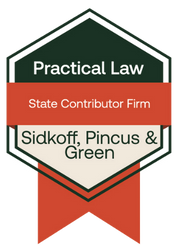Philadelphia Business Lawyers: Disparaging Trademarks

Trademarks are a business asset that help identify a business. Most trademarks promote the business in a positive light. Some trademarks are contested because they are too close to another trademark. Other trademarks can be considered offensive. Trademark applications and contests over trademarks are decided by the US Patent and Trademark Office (USPTO) or the Trademark Trial and Appeal Board (TTAB.)
Constitutional Law vs. Trademark Law
The USPTO and TTAB currently decide if a trademark is disparaging based on whether the trademark refers to an identifiable group and whether a substantial part of that group considers the trademark to be offensive. Factors used to decide whether trademarks are disparaging are how a dictionary defines the key words, as well as how and where the trademark will appear.
Offensive or disparaging trademarks raise the issue of whether they are protected by the US Constitution’s Freedom of Speech provision of the First Amendment. Trademark applicants claim that the USPTO and TTAB cannot deny the application even if the trademark is disparaging because the denial violates the First Amendment’s right to free speech. Those who think disparaging trademarks should be denied rely on the federal Lanham Act.
Current Cases
The case of In re McGinley decided the issue in favor of the USPTO and TTAB. The case reasoning was that applicants were still free to use the disparaging words to identify their business – they just could not get an approved trademark for it.
The federal case involving the Asian band relied on In re McGinley to hold that the band could not get a trademark. A dissenting judge in the Asian band case reasoned that it might be time to revisit the In re McGinley decision because recent law has held that commercial speech is protected by the U.S. Constitution. The federal court overseeing the Asian band case agreed with the dissenting judge and recently decided it would revisit the constitutionality of denying disparaging trademarks.
Philadelphia Business Lawyers at Sidkoff, Pincus and Green handle Intellectual Property Issues
Philadelphia business lawyers at the Law Offices of Sidkoff, Pincus and Green have experience handling intellectual property issues and are knowledgeable in current trademark laws. Our commercial litigation lawyers in Philadelphia have the experience to help businesses overcome the constitutional and legal challenges they often face. Call 215-574-0600 or fill out our online contact form to discuss your intellectual property concerns with an experienced Philadelphia business lawyer today.



















